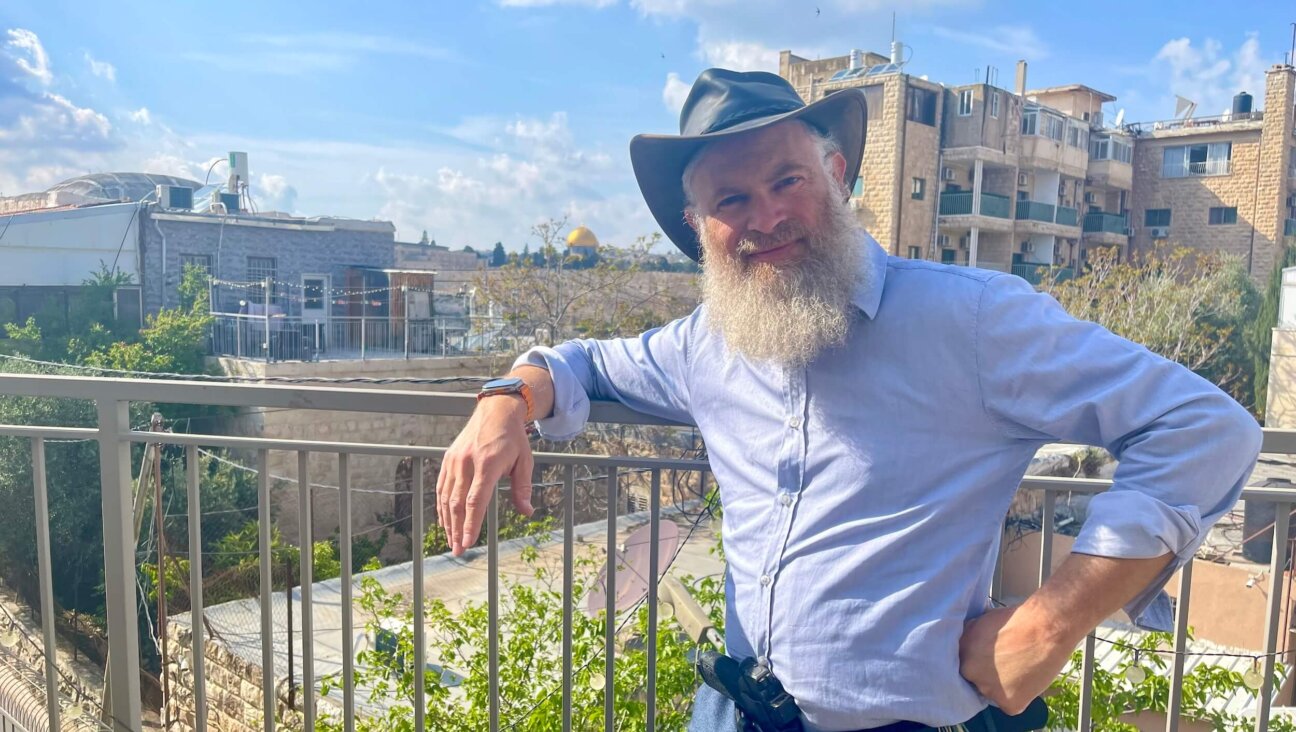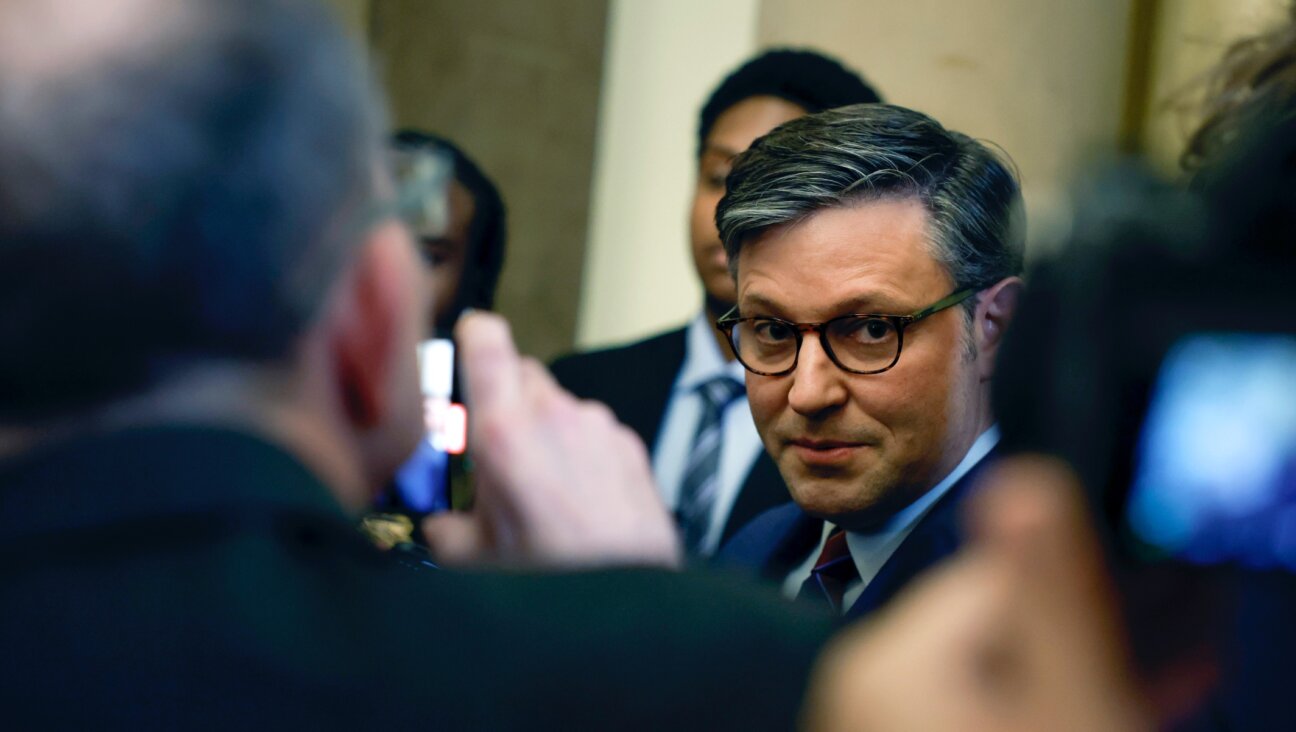Arab Envoys Planning Translation Service
WASHINGTON — Arab governments are planning a service that would translate favorable news and commentary from the Arab media, in an effort to counterbalance the Middle East Media Research Institute and what detractors say is its distribution of typically critical material from the Arab press.
The idea is being discussed by Arab information ministers, who are concerned about the influence of the institute’s translated material in the West and particularly in the United States, senior Arab government sources confirmed.
Founded by two Israelis, the Middle East Media Research Institute, known by its acronym Memri, is a five-year-old organization with offices in Washington and Jerusalem and branches in London and Berlin which translates selections from the Arab and Iranian media into eight languages and distributes them to media outlets and policy-makers. Memri’s selections, sent to subscribers in “dispatches,” typically feature articles and editorials that show the militant side of Arab societies, often anti-American or antisemitic.
“There is talk about establishing this competition to Memri, which would focus on positive stories from the Arab media,” said Marwan Kraidy, a professor of global communications at American University in Washington, D.C., who specializes in the Arab media. Kraidy said that Arab governments are eager to curb anti-Arab and anti-Islamic sentiments that were generated in the West following the September 11 terrorist attacks.
The battles for hearts and minds surrounding conflicts between the West and Islamic countries is being fought on a number of fronts. The United States Information Agency recently launched an ambitious “public diplomacy” campaign that includes the creation of Radio Sawa, a new Arabic-language offshoot of Voice of America. It broadcasts American popular music and short news bulletins to the Arab world. The United States has also bought airtime on Arab television stations to broadcast ads about the comfortable life of Arabs and Muslims living in the United States.
Arab media outlets have boosted their English language services, and Arab governments have hired American-based public relation firms to help them polish their image abroad. Two weeks ago, the Qatar-based satellite television station Al Jazeera announced that within weeks it would inaugurate an English language Web site, to be followed by an English-language television channel next year.
Founded in 1998 by Yigal Carmon and Meyrav Wurmser, both of whom were early critics of the Oslo accords, Memri has had a “tremendous influence” on America’s perception of the Middle East, said Jon Alterman, director of the Middle East program at the Center for Strategic and International Studies, a Washington think tank. “Memri gave people access to things they never had access before, and they have a very impressive mailing list,” he said.
That mailing list now reaches about 20,000 subscribers, by e-mail or fax, including opinion shapers such as columnists Thomas Friedman and Richard Cohen, former Commentary editor Norman Podhoretz and leading Islam scholar Bernard Lewis — all of whom have characterized Memri’s service as “invaluable.”
Memri, “for many people, including opinion leaders, provides a window to a whole world that they know exists but they don’t know much about,” said Alterman, who previously served as a member of the Policy Planning Staff at the State Department and as a special assistant to the assistant secretary of state for Near Eastern affairs. Alterman recently authored a monograph titled “New Media, New Politics? From Satellite Television to the Internet in the Arab World.”
Asked if a competing service to Memri’s can enjoy credibility in Washington, Alterman said “Credibility comes from being credible.” If the quality is good and the material interesting, he said, such a service may succeed. “It depends on how well you know your audience and how well you do your packaging.
Carmon welcomed the Arab information ministers’ initiative, expressing satisfaction at Memri’s influence. He said, however, that the initiative may be redundant, because Memri already translates a lot of material that sheds positive light on Arab societies.
“Anyone who browses our Web site would find a treasure trove of liberal voices from the Arab and Muslim world,” Carmon said. “We have a ‘Reform Project’ in which we gather all the reformist voices we can find [in the Arab media], and we intend to publish a book and convene a conference on this issue this year. So although I welcome this initiative, the toil may be in vain, because you can find in Memri any positive, liberal, reformist voice that appears in the Arab media.”
Speaking last week at the Middle East Institute, a Washington think tank many associate with a wing of the State Department that has sought a neutral line in the Arab-Israeli conflict, Kraidy said that both Arab governments and Arab media professionals and news organizations are slowly making progress toward liberalization and professionalization of the news media in the Arab world.
He described the overall state of the Arab media as grim, but pointed out some silver linings. Laws regulating the media are either being softened or overlooked in various Arab countries. The restrictive Syrian regime last year allowed private ownership of newspapers. More media organizations are hiring qualified professionals.
Asked what the American government can do to support this process and perhaps enhance it, Kraidy said that given the strong anti-American sentiment in the region, “the best thing the U.S. can do — and I am not joking — is to publicly come out against this process.” American attempts to somehow influence the Arab media, he said, could only backfire.

I hope you appreciated this article. Before you go, I’d like to ask you to please support the Forward’s award-winning journalism this Passover.
In this age of misinformation, our work is needed like never before. We report on the news that matters most to American Jews, driven by truth, not ideology.
At a time when newsrooms are closing or cutting back, the Forward has removed its paywall. That means for the first time in our 126-year history, Forward journalism is free to everyone, everywhere. With an ongoing war, rising antisemitism, and a flood of disinformation that may affect the upcoming election, we believe that free and open access to Jewish journalism is imperative.
Readers like you make it all possible. Right now, we’re in the middle of our Passover Pledge Drive and we need 500 people to step up and make a gift to sustain our trustworthy, independent journalism.
Make a gift of any size and become a Forward member today. You’ll support our mission to tell the American Jewish story fully and fairly.
— Rachel Fishman Feddersen, Publisher and CEO
Join our mission to tell the Jewish story fully and fairly.
Our Goal: 500 gifts during our Passover Pledge Drive!























